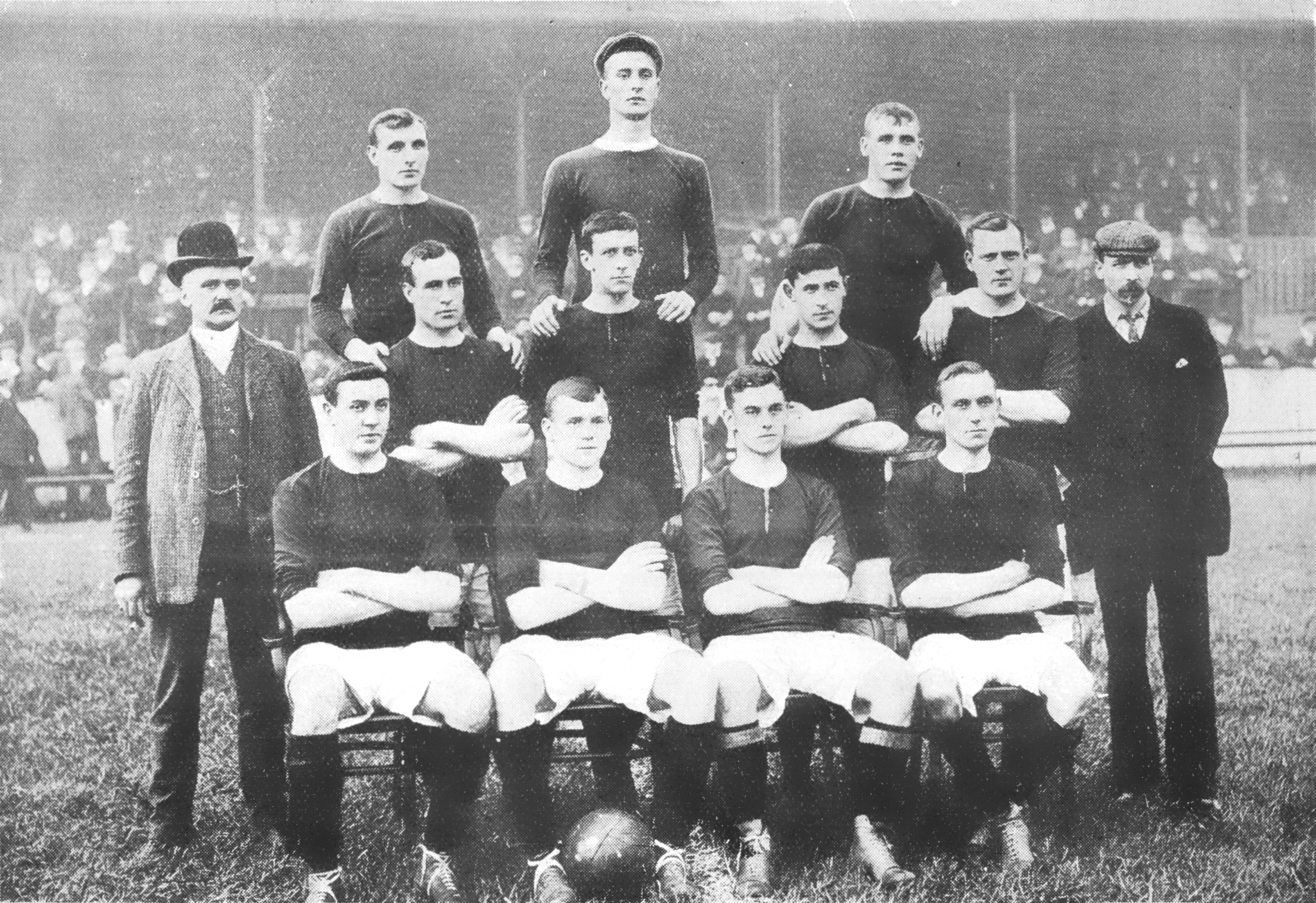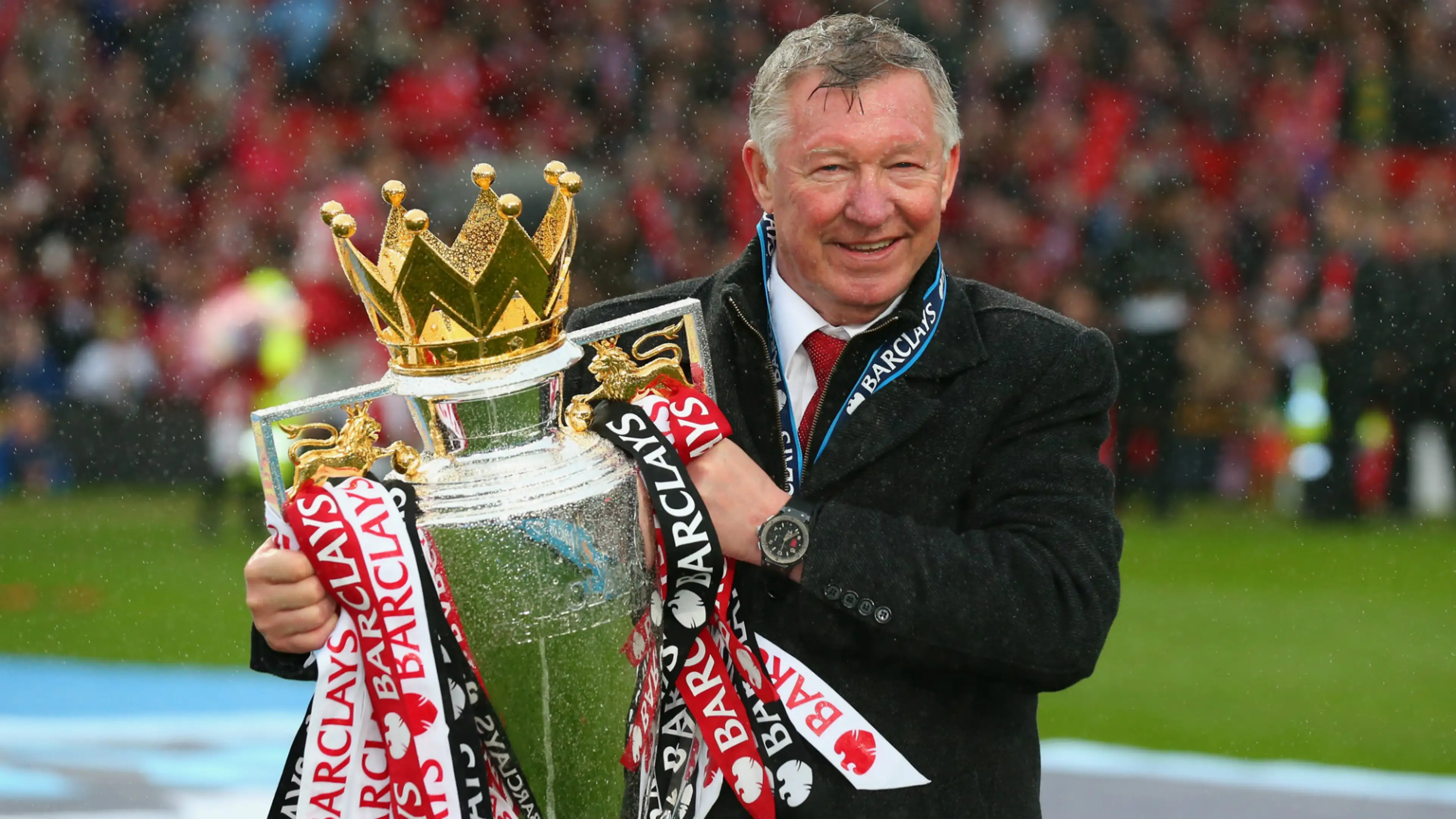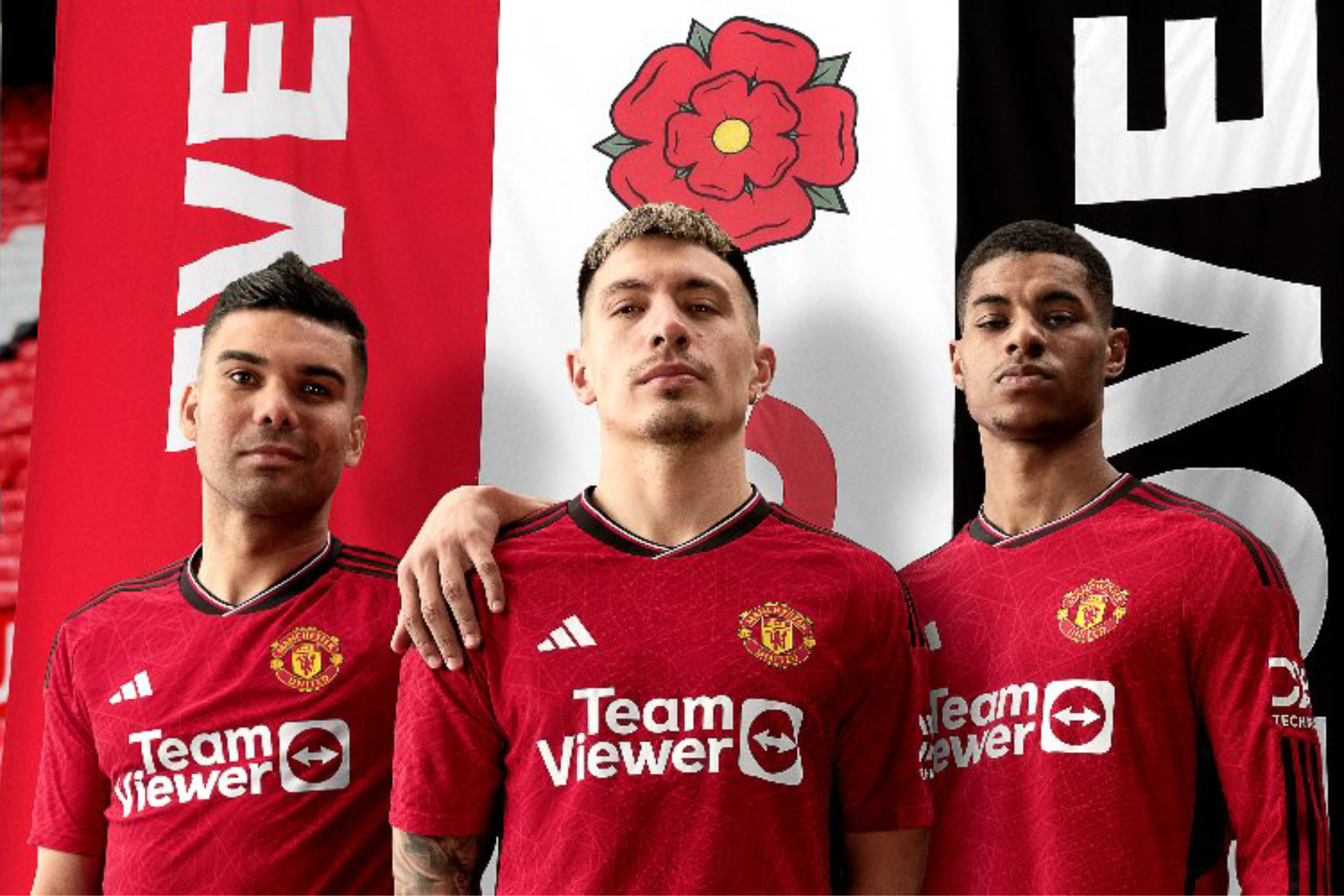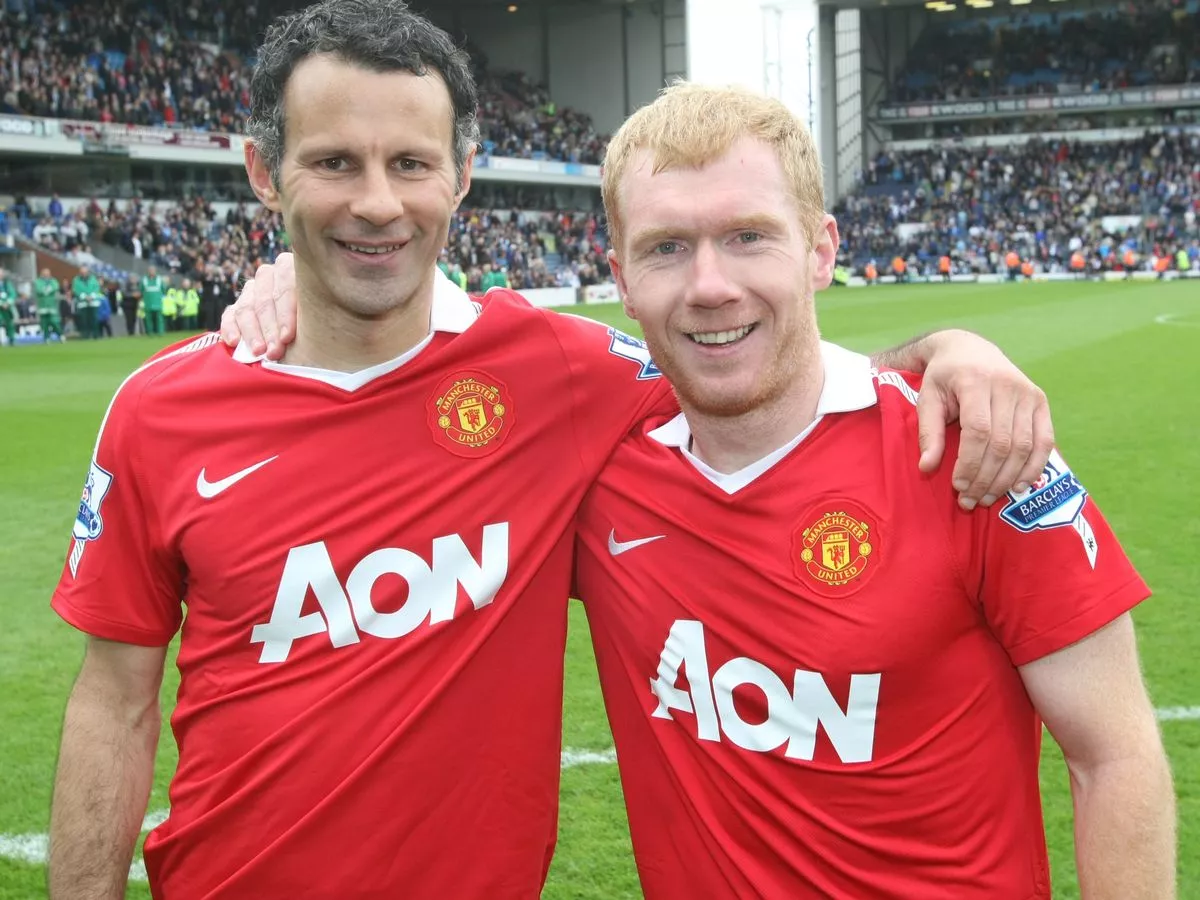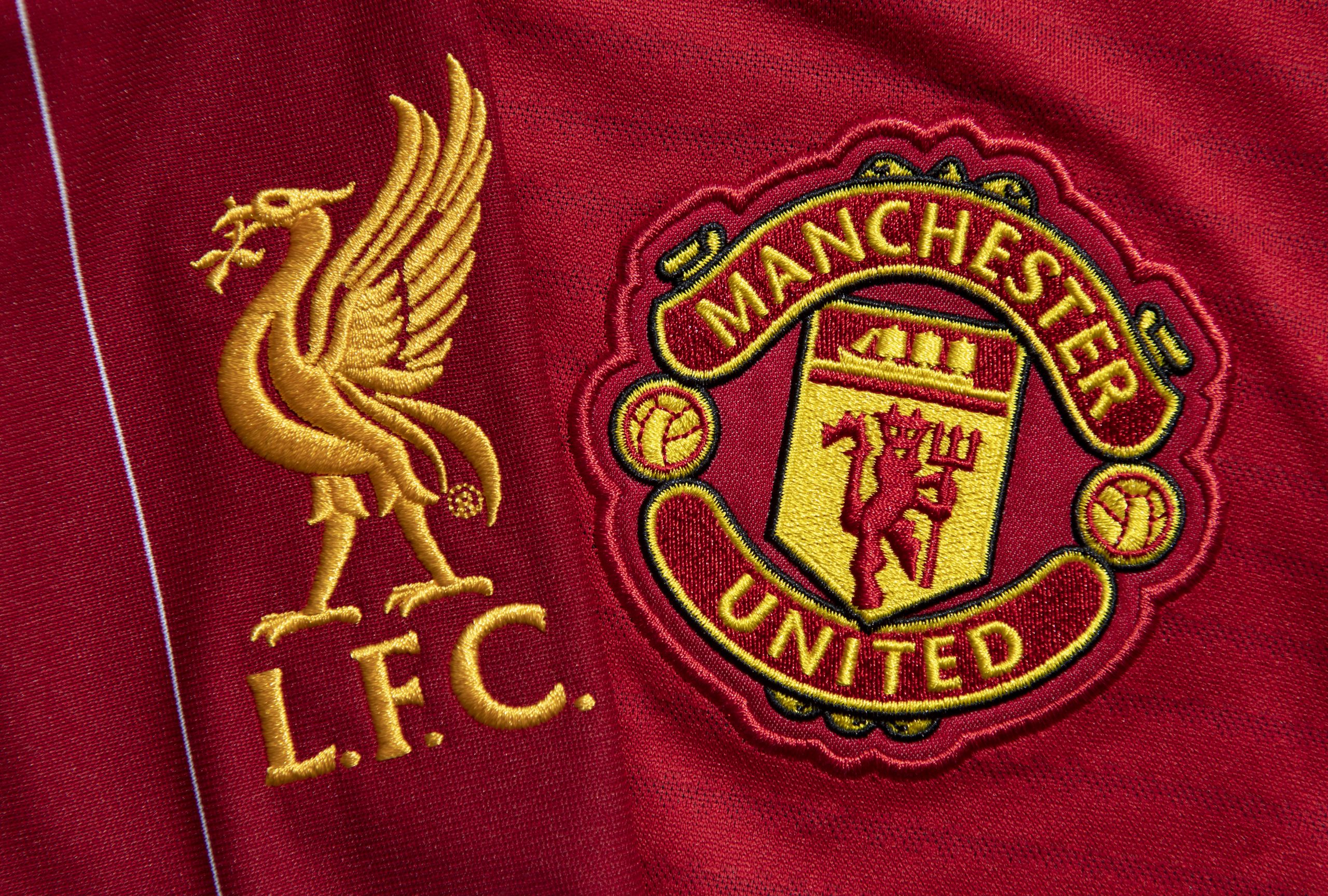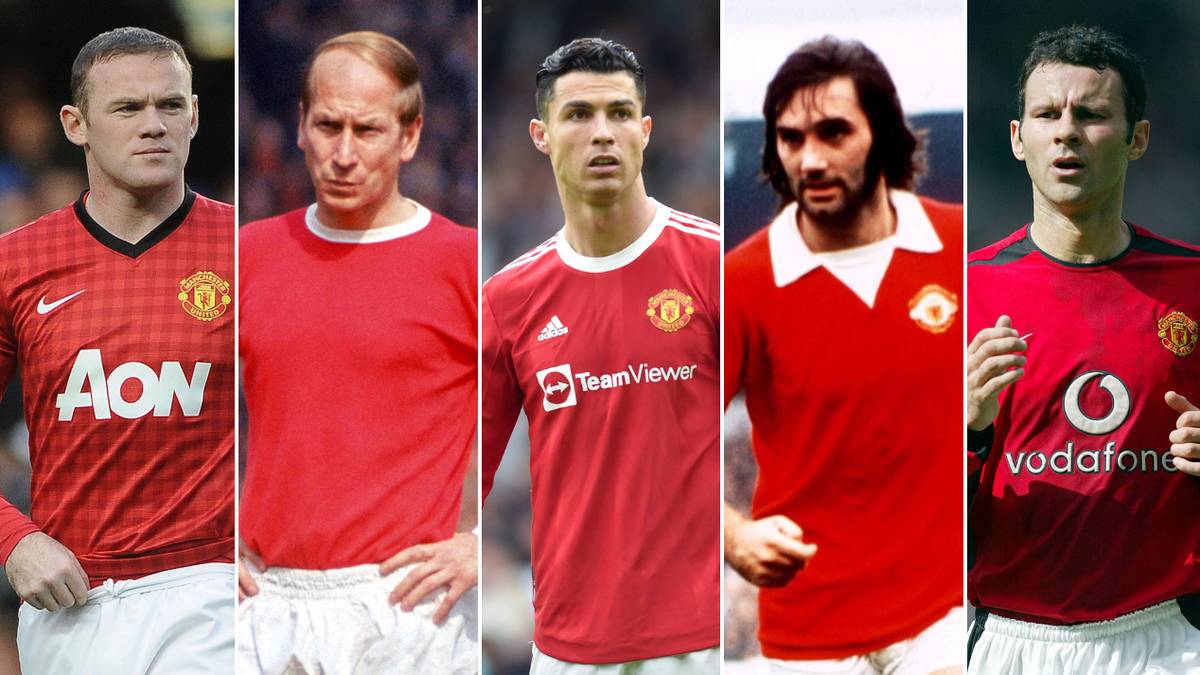Manchester United - The Most Popular English Club
The club's popularity transcends geographical boundaries, making it the most popular English team globally. In this article, we delve into the reasons behind Manchester United's unparalleled appeal and explore what sets it apart from the rest.
Author:Gabriel MartinezSep 29, 20231.5K Shares157.4K Views
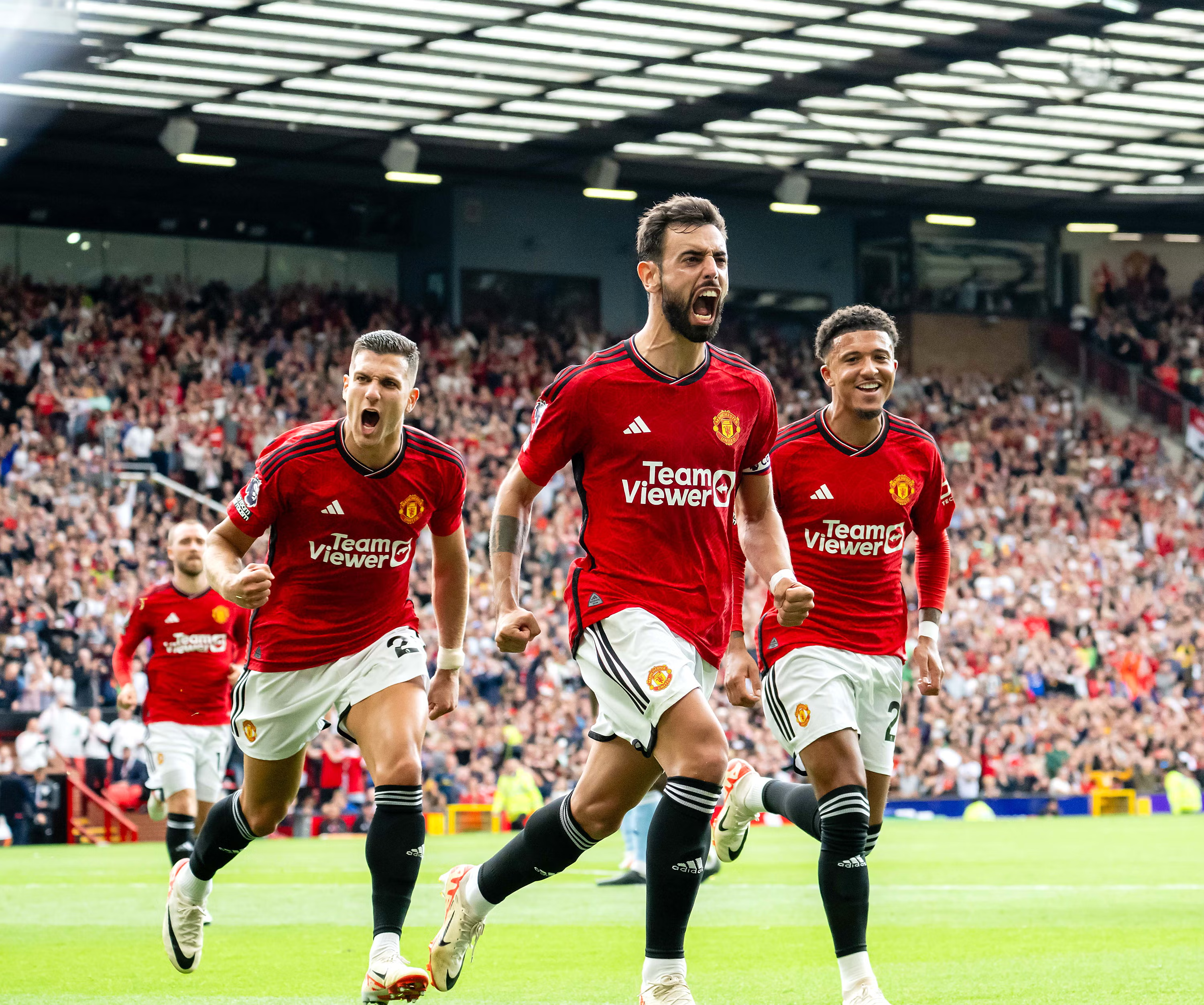
Manchester United, one of the most iconic footballclubs in the world, holds a unique place in the hearts of footballenthusiasts. The club's popularity transcends geographical boundaries, making it the most popular English team globally. In this article, we delve into the reasons behind Manchester United's unparalleled appeal and explore what sets it apart from the rest.
The Oldest Top Club In The World
Manchester United's storied history is a testament to its enduring legacy in the world of football. It proudly holds the title of being the oldest top club in the world, a fact that reflects the club's rich and illustrious past.
The Humble Beginnings
The origins of Manchester United can be traced back to 1878 when it was known as Newton Heath LYR FootballClub. During these early years, the club played in the distinctive Green and Gold colors, a nod to its industrial roots.
Pioneers Of Competitive Football
In 1888, Manchester United took a significant step forward by joining their first competitive league. They became founding members of the FootballAlliance, a league that would later merge with the FootballLeague. This marked the beginning of their journey into organized and competitive football.
Ascending To The Summit
The true turning point in the club's history came in the 1892/93 season when they were among the original members of the newly formed First Division. This elevation to the highest tier of English footballlaid the foundation for what would become a legacy of success.
The Rebirth As Manchester United
In April 1902, the club faced a critical juncture in its existence. Financial difficulties and the threat of dissolution loomed large. However, salvation came from an unlikely source – one of the club's own players, Captain Harry Stafford. Under his leadership and vision, the club was reborn, and the name was changed to Manchester United.
A Century And Beyond
The decision to rename the club as Manchester United in 1902 marked the beginning of a new era. Little did anyone know that this rebirth would shape the course of footballhistory. Over the next century, Manchester United would go on to become one of the most iconic and successful footballclubs in the world.
The Legends - Sir Matt Busby And Sir Alex Ferguson
No discussion of Manchester United's history is complete without mentioning two of the most revered figures in footballmanagement – Sir Matt Busby and Sir Alex Ferguson. These managerial giants collectively oversaw the club for half a century of its 133-year history. Their leadership, vision, and dedication contributed significantly to the club's enduring success and global appeal.
As the years rolled on, Manchester United continued to add to its legacy, securing numerous domestic and international honors. From the "Busby Babes" to the "Class of '92," generations of players have worn the famous red jersey with pride, leaving an indelible mark on the sport.
Global Dominance - Manchester United's Unmatched Popularity
Manchester United, often referred to as the "Red Devils," stands as a beacon of success and global reach in the world of football. With an illustrious history and a passionate fan base that spans the globe, the club has not only reached the pinnacle of footballbut has maintained its dominance for an extended period.
A Global Fanbase
One of the key factors behind Manchester United's enduring popularity is its vast and dedicated global fanbase. The club's appeal transcends borders and cultures, making it the most popular English team in a staggering 37.2 percent of countries. This remarkable statistic showcases the club's ability to resonate with fans from diverse backgrounds, creating a global community of supporters united by their love for the Red Devils.
Surpassing The Competition
In the competitive landscape of English football, Manchester United's popularity is unparalleled. They have consistently outshone their closest rivals, with a 6.46 percent lead over Liverpool, the second most popular English club in the global standings. This lead is a testament to the enduring magnetism of Manchester United, drawing fans from every corner of the world.
The Fierce Competition
While other English clubs like Chelsea, Arsenal, Manchester City, and Tottenham have made significant strides in building their international fan bases, their collective efforts still fall short of challenging Manchester United's dominance. Together, these clubs account for just 39.78 percent of Manchester United's global popularity, highlighting the significant gap that exists between the Red Devils and their competitors.
The Secret To Success
Manchester United's success both on and off the pitch has played a pivotal role in establishing its global reputation. The club's history is marked by a plethora of domestic and international trophies, including Premier League titles, FA Cups, and UEFA Champions Leaguevictories. These triumphs have not only delighted the Old Trafford faithful but have also drawn admirers from around the world who are inspired by the club's commitment to excellence.
The Power Of Branding
In addition to its on-field success, Manchester United has harnessed the power of branding and digital media to connect with fans globally. The club's active presence on social media platforms, partnerships with global brands, and innovative marketing campaigns have solidified its status as a global brand. This approach has allowed Manchester United to maintain its appeal even during periods of transition on the pitch.
The Most Valuable Brand In Sports - Manchester United's Triumph
On September 23, 2011, Marketing Week published an article that sent shockwaves through the world of sportsbranding: Manchester United had emerged as the most valuable sports brand globally. With its brand value surging by an astonishing 105 percent to £412 million over the preceding six years, the Red Devils had achieved an unprecedented feat, outpacing iconic names like the New York Yankees, Los Angeles Lakers, Ferrari, and McLaren.
A Remarkable Ascension
Manchester United's meteoric rise in brand value is a testament to the club's enduring appeal and its ability to captivate audiences on a global scale. This surge in value signifies the club's successful navigation of the complex intersection of sports, entertainment, and marketing, propelling it to the top of the sports brand hierarchy.
Outshining American Icons
Surpassing the likes of the New York Yankees and Los Angeles Lakers, two of the most illustrious franchises in American sports history, is a remarkable achievement. It showcases Manchester United's global reach and underscores how football, often dubbed "soccer" in the United States, has become a powerhouse in the world of sports branding.
Triumph In The World Of Motorsports
Notably, Manchester United's brand value also surpassed that of legendary motorsports brands, Ferrari and McLaren. This achievement extends beyond football, highlighting the club's universal appeal. It serves as a testament to the fact that Manchester United is not merely a footballclub but a global cultural phenomenon.
Reigning Supreme In Football
Perhaps the most remarkable aspect of Manchester United's ascent as the most valuable sports brand is its position in the realm of football. By definition, this accolade makes them the most valuable soccerbrand, surpassing both Barcelonaand Real Madrid, two of the most storied and successful footballclubs in the world. It solidifies Manchester United's standing as the standard-bearer for footballing excellence on and off the pitch.
The Power Of Global Fandom
The driving force behind Manchester United's remarkable brand value is its global fanbase. The club's ability to engage and connect with fans from all corners of the world has been pivotal in elevating its brand. Whether it's through digital engagement, merchandise, or immersive fan experiences, Manchester United has mastered the art of cultivating a global community united by their passion for the Red Devils.
The Legacy Of Youth Development At Manchester United
In the world of football, the debate over which club excels in youth player development often revolves around two giants: Manchester United and Barcelona. While Barcelona's La Masia has garnered significant acclaim, Manchester United's youth development system has quietly forged its own remarkable legacy, particularly in the English Premier League (EPL) and European football.
Premier League Dominance
When it comes to youth development in the EPL, Manchester United stands unchallenged. The club's commitment to nurturing young talents and integrating them into the first team has resulted in a consistent supply of homegrown stars. Over the last 66 years, no other EPL club has matched Manchester United's ability to produce and promote talent from its youth academy.
A Blend Of Youth And Investment
Barcelona's La Masia has undoubtedly played a pivotal role in producing world-class talents who have graced the Camp Nou. However, it's essential to note that even Barcelona has supplemented its youth products with high-profile signings. The purchases of players like Gerard Piqué, Cesc Fàbregas, David Villa, and Alexis Sánchez reflect that youth development, while crucial, is often complemented by strategic investments.
United's Youth Tradition
Sir Matt Busby, often considered the father of youth development, laid the foundation for Manchester United's tradition of nurturing young talents. The Manchester United Academy, established in 1945, is a testament to this legacy. Notable Busby Babes, including Tommy Taylor, emerged from this system, emphasizing the club's commitment to developing talent from within.
A Rich History Of Success
The accolades garnered by Manchester United's youth teams speak volumes about the club's dedication to youth development. The club has won the FIFAYouth Cup 17 times and the FA Youth Cup 10 times, including the first five editions from 1953 to 1957 and most recently in 2011. These triumphs underscore the club's ability to consistently produce promising talents.
Homegrown Legends
Perhaps the most compelling evidence of Manchester United's commitment to youth development lies in the fact that five of the club's all-time appearance leaders emerged from their youth system. These legendary players, molded by the club's academy, include the likes of Ryan Giggs and Paul Scholes. They serve as a testament to the enduring impact of Sir Matt Busby's vision.
A Bright Future
The tradition of nurturing young talent continues at Manchester United today. The club's current first-team squad features several players who have graduated from the academy, such as Marcus Rashford and Scott McTominay. Additionally, a new generation of talents, including Jesse Lingard, Ryan Tunnicliffe, and Robbie Brady, eagerly awaits their opportunity to make their mark on the club's rich history.
The Enduring Loyalty Of Manchester United's Players
In the ever-evolving landscape of modern football, loyalty is often considered a rare and precious commodity. However, one club stands out for its steadfast tradition of player loyalty – Manchester United. While debates may continue over whether their loyalty tradition surpasses that of Barcelona, there's no denying that within the Premier League, it shines as a beacon of unwavering commitment.
The Gary Neville And Paul Scholes Era
The retirement of Gary Neville and Paul Scholes in the same year was a poignant moment for Manchester United fans. What made it truly remarkable was the fact that these two stalwarts had spent their entire playing careers at Old Trafford. Their loyalty to the club, spanning decades, is a testament to the unique bond that exists between players and Manchester United.
The Legacy Of One-Club Players
Manchester United's tradition of player loyalty extends far beyond Gary Neville and Paul Scholes. One of the most celebrated one-club players in the history of footballis undoubtedly Sir Bobby Charlton. Charlton's name is synonymous with Manchester United, and his loyalty to the club resonates with fans as a symbol of unwavering commitment.
The Evergreen Ryan Giggs
Ryan Giggs, a true legend in the world of football, epitomizes the concept of loyalty at Manchester United. Starting his 21st season with the club at the age of 37, Giggs is a living embodiment of dedication to the Red Devils. His enduring presence on the field is a testament to the club's ability to foster long-term relationships with its players.
A Legacy Of Long-Standing Loyalty
Throughout its storied history, Manchester United has been home to an impressive roster of players who have stayed with the club for a decade or more. This tradition of player loyalty is reflected in the fact that 65 players, spanning various eras, have proudly worn the Manchester United jersey for ten years or more.
The Manchester United Family
The unique connection between players, the club, and its fans has been instrumental in nurturing player loyalty. Manchester United is not just a footballclub; it's a family where players become part of a legacy that transcends their time on the pitch. This sense of belonging has played a significant role in keeping players committed to the club.
Rivalries And Drama - The Heartbeat Of Manchester United's Legacy
The Premier League, with its electrifying matches and passionate fan base, thrives on the intense rivalries that define the competition. Manchester United, as one of the league's most iconic clubs, finds itself at the epicenter of several of these fierce rivalries, each adding a unique layer of drama and excitement to the club's storied history.
Liverpool - The North-West Derby
The clash between Manchester United and Liverpool is a fixture that needs no introduction. It's a contest steeped in history, geographical proximity, and a shared quest for supremacy. Known as the North-West Derby, this match-up pits two of England's most successful and storied clubs against each other.
The rivalry between Manchester United and Liverpool is a blend of tradition and competition. Both clubs have a rich history of success, with numerous league titles and European triumphs to their names. When they face off, it's not just a game; it's a battle for bragging rights, a chance to assert dominance in English football.
Manchester City - The Manchester Derby
The Manchester Derby, where Manchester United squares off against Manchester City, is another highlight of the Premier League calendar. This local rivalry transcends footballand is intertwined with the city's identity. The contrast in footballing philosophies adds an extra layer of drama to this clash.
Manchester City's emergence as a footballing powerhouse in recent years has intensified the rivalry. Matches between the two Manchester clubs have often been high-stakes affairs, with title races, top-four finishes, and local pride on the line. The passion and intensity on display during these fixtures are a testament to the significance of the rivalry.
Arsenal - A Clash Of Styles
Manchester United's rivalry with Arsenal in the late 1990s and early 2000s was marked by a clash of footballing styles and larger-than-life personalities. The battles between Sir Alex Ferguson and Arsène Wenger, two of the Premier League's most iconic managers, added an extra layer of intrigue to this rivalry.
Matches between Manchester United and Arsenal were not just about points; they were about footballing philosophy. The rivalry reached its zenith during the "Battle of Old Trafford" in 2003, a match that saw tempers flare and dramatic moments aplenty.
Drama, Passion, And Legacy
What sets these rivalries apart is not just the competition on the field but the storiesthey've generated over the years. From iconic goals to memorable clashes between players and managers, these fixtures have provided some of the most dramatic moments in Premier League history.
The drama that unfolds during matches against Liverpool, Manchester City, and Arsenal is etched into the collective memory of footballfans worldwide. It's a reminder that football is not just a sport; it's a narrative, a saga of passion, pride, and rivalry that continues to captivate audiences.
Top 10 Manchester United Players In History
- Sir Bobby Charlton:A true legend of the club, Charlton's scoring prowess and loyalty to Manchester United define an era.
- Ryan Giggs:The Welsh wizard's longevity and exceptional skillsmake him one of the most decorated players in football history.
- George Best:Often hailed as one of the most gifted players ever, Best's flair and talent continue to inspire generations.
- Eric Cantona:The enigmatic Frenchman's influence extended beyond the pitch, igniting a Manchester United revival in the 1990s.
- Sir Matt Busby:As a player and manager, Busby laid the foundation for the club's success, shaping its identity and resilience.
- Denis Law:A prolific scorer, Law's partnership with Charlton and Best is etched in Manchester United's history.
- Cristiano Ronaldo:His explosive pace and goal-scoring exploits catapulted Manchester United to new heights during his tenure.
- Roy Keane:A fierce leader and midfield general, Keane epitomized determination and commitment on the field.
- Paul Scholes:Known for his incredible passing ability, Scholes was the heartbeat of Manchester United's midfield.
- Gary Neville:A loyal servant and tenacious defender, Neville's leadership and dedication made him a club icon.
People Also Ask
Is Manchester United The Most Popular Club In The World?
According to recent figures releasedby Manchester United on Tuesday, the club has remarkably doubled its international fanbase in just five years, reaching a staggering 659 million fans worldwide. This reaffirms Manchester United's position as the most popular club in world football.
Which English Football Club Has The Most Fans?
The English football club with the most fans may vary depending on how fan base is measured, such as social media followers, match attendance, or global reach. Historically, Manchester United, Liverpool, and Arsenal have had significant followings, both domestically and internationally. But Manchester United remains as the most followed team in Premier League.
Are Manchester United The Biggest Club In England?
Whether Manchester United is the biggest club in England is a matter of debate and can depend on various factors, including recent on-field success, historical achievements, fan base, and global reach.
Clubs like Manchester United, Liverpool, and Manchester City have all claimed the title of the "biggest" club at different times based on various criteria. It's important to note that this assessment can change over time as clubs go through different phases of success and development.
Conclusion
The history of Manchester United is a tapestry woven with the brilliance of countless footballing legends. From Sir Bobby Charlton's elegance to Ryan Giggs's enduring magic, each player on this list contributed to the club's rich legacy.
Manchester United's greatness isn't confined to trophies alone; it resides in the hearts of fans, the drama of unforgettable rivalries, and the indomitable spirit that has defined the club for generations. As we celebrate these top 10 players, we pay homage to a club that has touched lives, inspired dreams, and continues to be a symbol of footballing excellence.
Jump to
The Oldest Top Club In The World
Global Dominance - Manchester United's Unmatched Popularity
The Most Valuable Brand In Sports - Manchester United's Triumph
The Legacy Of Youth Development At Manchester United
The Enduring Loyalty Of Manchester United's Players
Rivalries And Drama - The Heartbeat Of Manchester United's Legacy
Top 10 Manchester United Players In History
People Also Ask
Conclusion

Gabriel Martinez
Author
Gabriel Martinez is a respected author at Tennessee Independent, renowned for his expertise in covering News and Sports topics. With a comprehensive understanding of current events and a knack for delivering accurate and engaging content, Gabriel provides readers with insightful analysis and compelling narratives. His dedication to factual accuracy and commitment to delivering authoritative content make him a trusted source for news and sports enthusiasts on Tennessee Independent.
Latest Articles
Popular Articles
